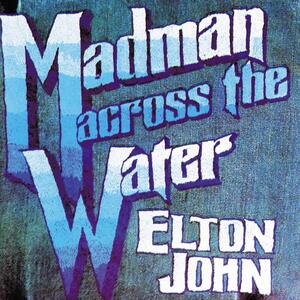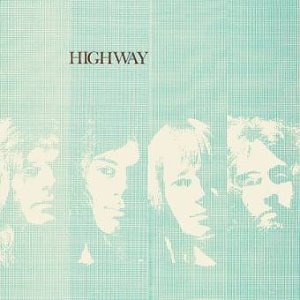Related Research Articles

John Lennon/Plastic Ono Band is the debut solo studio album by English musician John Lennon. Backed by the Plastic Ono Band, it was released by Apple Records on 11 December 1970 in tandem with the similarly titled album by his wife, Yoko Ono. At the time of its issue, John Lennon/Plastic Ono Band received mixed reviews overall, but later came to be widely regarded as Lennon's best solo album.

The Bee Gees were a musical group formed in 1958 by brothers Barry, Robin, and Maurice Gibb. The trio were especially successful in popular music in the late 1960s and early 1970s, and later as prominent performers in the disco music era in the mid-to-late 1970s.

Top of the Pops (TOTP) is a British music chart television programme, made by the BBC and broadcast weekly between 1 January 1964 and 30 July 2006. The programme was the world's longest-running weekly music show. For most of its history, it was broadcast on Thursday evenings on BBC One. Each show consisted of performances of some of the week's best-selling popular music records, usually excluding any tracks moving down the chart, including a rundown of that week's singles chart. This was originally the Top 20, though this varied throughout the show's history. The Top 30 was used from 1969, and the Top 40 from 1984.

Free were an English rock band formed in London in 1968 by Paul Rodgers (vocals), Paul Kossoff (guitar), Andy Fraser and Simon Kirke. They are best known for their hit songs "All Right Now" and "Wishing Well". Although renowned for their live performances and non-stop touring, their music did not sell well until their third studio album, Fire and Water (1970), which featured the hit "All Right Now". The song helped secure them a performance at the 1970 Isle of Wight Festival, where they played to an audience of 600,000 people. In the early 1970s they became one of the best-selling British blues rock groups; by the time they disbanded, they had sold more than 20 million records worldwide and had played in more than 700 arenas and festival concerts. "All Right Now" remains a staple of R&B and rock, and has entered ASCAP's "One Million" airplay singles club.

"You've Got a Friend" is a 1971 song written by American singer-songwriter Carole King. It was first recorded by King and included on her second studio album, Tapestry (1971). Another well-known version is by James Taylor from his album Mud Slide Slim and the Blue Horizon. His was released as a single in 1971, reaching number one on the Billboard Hot 100 and number four on the UK Singles Chart. The two versions were recorded simultaneously in 1971 with shared musicians.

"Take Me Home, Country Roads", also known simply as "Country Roads", is a song written by Bill Danoff, Taffy Nivert and John Denver. It was released as a single performed by Denver on April 12, 1971, peaking at number two on Billboard's US Hot 100 singles for the week ending August 28, 1971. The song was a success on its initial release and was certified Gold by the RIAA on August 18, 1971, and Platinum on April 10, 2017. The song became one of John Denver's most popular songs. It has continued to sell, with over 1.6 million digital copies sold in the United States.

Madman Across the Water is the fourth studio album by English musician Elton John, released in 1971 through DJM and Uni Records. The album was his third album to be released in 1971, at which point John had been rising to prominence as a popular music artist. John's first progressive rock album, Madman Across the Water contains nine tracks, each composed and performed by John and with lyrics written by songwriting partner Bernie Taupin. Yes keyboardist Rick Wakeman plays Hammond organ on two songs.

"Whole Lotta Love" is a song by the English rock band Led Zeppelin. It is the opening track on the band's second album, Led Zeppelin II, and was released as a single in 1969 in several countries; as with other Led Zeppelin songs, no single was released in the United Kingdom. In the United States, it became their first hit and was certified gold. Parts of the song's lyrics were adapted from Willie Dixon's "You Need Love", recorded by Muddy Waters in 1962; originally uncredited to Dixon, a lawsuit in 1985 was settled with a payment to Dixon and credit on subsequent releases.

Highway is the fourth studio album by the English rock band Free. It was recorded extremely quickly in September 1970 following the band's success at the Isle of Wight Festival but with an attitude of relaxation, the band having achieved worldwide success with their previous album Fire and Water and the single "All Right Now". It is a low-key and introspective album compared with its predecessors.

Broken Barricades is the fifth studio album by English rock band Procol Harum, released the same week they began their U.S. tour, on 3 April 1971. The UK release was on 11 June 1971. It was guitarist Robin Trower's last recording with the group until The Prodigal Stranger (1991).

"Proud Mary" is a song by American rock band Creedence Clearwater Revival, written by vocalist and lead guitarist John Fogerty. It was released as a single in January 1969 by Fantasy Records and on the band's second studio album, Bayou Country. The song became a major hit in the United States, peaking at No. 2 on the Billboard Hot 100 in March 1969, the first of five singles to peak at No. 2 for the group.

CCS, sometimes written as C.C.S., was a British musical group, led by blues guitarist Alexis Korner. The name was derived as an abbreviation of Collective Consciousness Society.

The Kempton Park steam engines are two large triple-expansion steam engines, dating from 1926–1929, at the Kempton Park Waterworks in south-west London. They were ordered by the Metropolitan Water Board and manufactured by Worthington-Simpson in Newark-On-Trent.

"MakeDamnSure" is a song by American rock band Taking Back Sunday. It was released as the first single from their third album, Louder Now. "MakeDamnSure" was released to radio on March 14, 2006. It has experienced much more success than the band's other singles on the Billboard Hot 100 and Alternative Songs chart. It is their most successful single to date, peaking at number 48 on the Hot 100 and number 8 on the Alternative charts.

"Love" is a song written and performed by John Lennon, originally released on his debut solo album John Lennon/Plastic Ono Band (1970). The song's theme is more upbeat than most of the songs on Plastic Ono Band.

"He's Gonna Step on You Again" is a song originally performed by John Kongos, co-written by Kongos and Christos Demetriou, and first released in 1971 by Fly Records. It entered the UK Singles Chart on 22 May 1971 and spent 14 weeks there, peaking at No. 4. Covers of the song have been chart successes several times, including for Happy Mondays in 1990.

"Living in the Past" is a song by British progressive rock group Jethro Tull. It is one of the band's best-known songs, and it is notable for being written in the unusual 5
4 time signature. The use of quintuple meter is quickly noted from the beginning rhythmic bass pattern, though it can also be explained as a distinct 6
8 + 2
4 syncopated rhythm.

"Imagine" is a song by the English rock musician John Lennon from his 1971 album of the same name. The best-selling single of his solo career, the lyrics encourage listeners to imagine a world of peace, without materialism, without borders separating nations and without religion. Shortly before his death, Lennon said that much of the song's lyrics and content came from his wife, Yoko Ono, and in 2017 she received cowriting credit.

T. Rex were an English rock band, formed in 1967 by singer-songwriter and guitarist Marc Bolan, who was their leader, frontman and only consistent member. Though initially associated with the psychedelic folk genre, Bolan began to change the band's style towards electric rock in 1969, and shortened their name to T. Rex the following year. This development culminated in 1970 with their first hit single "Ride a White Swan", and the group soon became pioneers of the glam rock movement.
References
- ↑ "Tap Turns on the Water". Discogs. 20 August 1971. Retrieved 21 January 2015.
- ↑ "C.C.S." www.officialcharts.com. Retrieved 21 January 2015.
- ↑ "Pan's People – Tap Turns On The Water". Oneforthedads.org.uk. 14 March 2015. Retrieved 1 November 2015.
- ↑ Chris Brown (4 May 2009). Booted and Suited. John Blake Publishing, Limited. pp. 109–. ISBN 978-1-84358-685-2.